Selected Topic
Issue 4 - Cinema – Architecture and Cinema: Real and Fictional Spaces (August 2011)
Show articles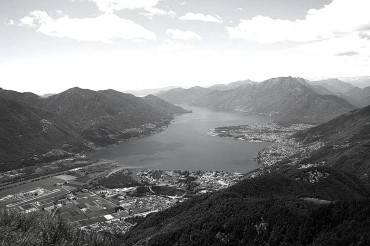
Overview of Locarno with the Lago Maggiore.
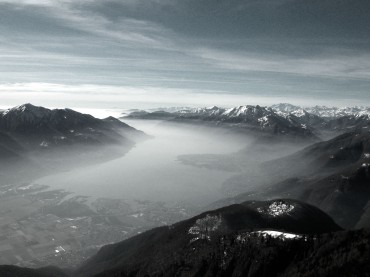
Overview of Locarno with the Lago Maggiore.
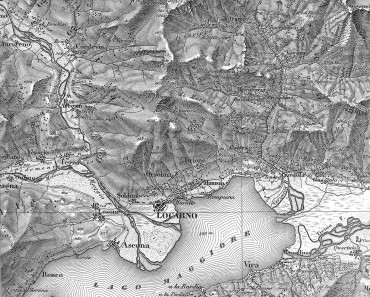
Map, DufourKarte 1858.
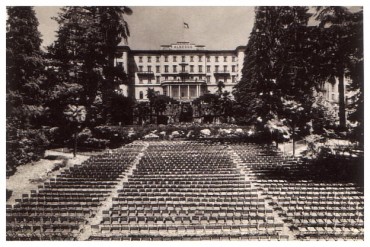
The Grand hotel garden: the origin of the festival 1954.
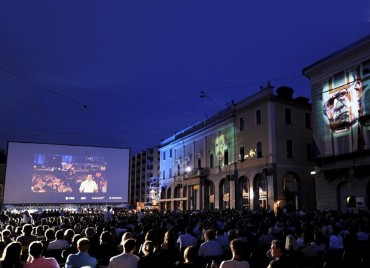
The Piazza grande.
4.7.2012 – Issue 4 - Cinema – Steinemann Ramias – Essays
LOCARNO - CITY OF FILM
by Ramias Steinemann
Locarno is a small town situated on the south side of the Alps, surrounded by Italy bordering just in the very north to Swiss Cantons. Topographically the city lies in the basin of the lake of Lago Maggiore at the bottom of nearly two thousand meter higher mountains. Due to the physical condition with orientation towards the south, mountains with warm winds in the back an exceptional micro-climate results: Locarno is the most Nordic place with Mediterranean climate on a lake. Similar to the climate also the language and the culture often remember Mediterranean.
Historically the medieval times directly influenced the Canton of Ticino. The canton Ticino was part of the Duke from Milan until the “Ennetbergische Crusades”, the crusades across the mountain around 1403-1515. The tributary status of Ticino under the Swiss Germans ended with the French revolutionary troops in 1798 ended. Napoleon Bonaparte replaced the belonging from Lombardei to the Helvetic Republic. The historic slogan after the act of Napoleon “liberi e svizzeri” reflects in an early moment already the ambiguity of the people of Ticino where they culturally and geographically belong to.
The Locarno Festival, founded in 1946 is one of the oldest film festivals in the world, alongside Venice and Cannes. It has continued to develop throughout its history: the Locarno Film Festival is well known worldwide to be a festival of discovery. Throughout its history, the festival has discovered new trends and launched the career of numerous directors and actors. In contrast to other film festivals, the film are completely public and some chosen ones are shown outside in the public plaza in front of nearly ten thousand people. Despite its history and size, the festival lacks a certain identity throughout the year: the whole infrastructure is temporary and so the international glamorous atmosphere dissolves yearly with the last show of the festival.
The Proposal for a new “Cineteca Svizzera” could increase the facilities for film projections during the festival and extends the presence of the cinema in the city during the whole year by projecting some of the nearly 1500 films that the Cineteca Svizzera collects since 1943. The project should deal both with the urban context of Locarno and with the cultural context of the Film Festival.
Download article as PDF

